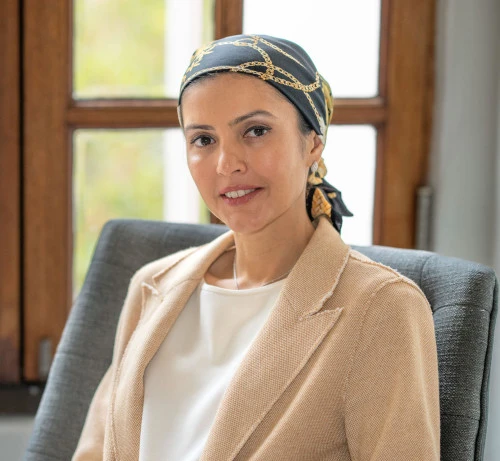
What to Expect in Your First Visit to a Fertility Specialist
The Center for Endometriosis & Fertility in Newport Beach, California
It’s common for many of us to feel under-educated about our own reproductive health. Too often cultural taboos and simply embarrassment prevents us from asking important questions over the years. When it comes to reproductive and sexual health, it can be difficult to know what’s “normal” and what may be a concern. Even if you feel embarrassed about certain issues, I’ve seen and heard it all and am here to support and help you, not to pass judgment. Please simply click this HIPAA Secure Email Link to ask me a question via email, the communication is private and secure.


Taking that first step towards seeking professional help with infertility can feel like a big decision. To ease some anxieties, here’s a detailed breakdown of what you can expect during your initial consultation with a fertility specialist:
Gathering Information:
- Medical History Review: Be prepared to discuss your overall health history, including past surgeries, chronic conditions, medications, and vaccinations. Your menstrual cycle history will be a key focus, so come ready to talk about regularity, duration, and any pain you experience.
- Partner Involvement: If you’re in a relationship and trying to conceive together, it’s ideal for your partner to attend the appointment. The specialist will likely ask questions about their medical history as well, particularly regarding sperm health.
- Past Fertility Efforts: If you’ve already been trying to conceive for some time, be sure to mention the duration and any fertility tracking methods you’ve used. Did you use ovulation predictor kits? Have you undergone any at-home insemination attempts? Sharing these details helps the doctor get a clearer picture of your situation.
Physical Examination:
- Pelvic Exam: A pelvic exam is a routine part of the consultation. The doctor will examine your reproductive organs to check for any abnormalities that might be impacting fertility. This could involve a Pap smear if you’re due for one.
Initial Testing (may not happen at the first visit):
- Blood Tests: Blood tests can assess hormone levels like FSH, LH, estrogen, and progesterone. These hormones play a crucial role in ovulation and implantation, and imbalances can affect fertility. Additionally, blood tests can check for thyroid function and rule out underlying medical conditions.
- Imaging Tests: A pelvic ultrasound might be used to visualize the uterus and ovaries, checking for fibroids, cysts, or abnormalities in their structure. In some cases, an HSG (hysterosalpingogram) X-ray might be ordered to evaluate the fallopian tubes for blockages.
Open Communication:
- Ask Questions: Don’t hesitate to ask questions you have about fertility, testing procedures, or potential treatment options. The specialist is there to guide you, and understanding your concerns is crucial for them to create a personalized plan.
- Discuss Expectations: Be open about your expectations for treatment and your desired family size. This helps the doctor tailor their approach to your specific goals.
Moving Forward:
- Diagnosis and Prognosis: While a definitive diagnosis might not be made during the first visit, the doctor will discuss their initial assessment and potential causes of your infertility. They may also offer a preliminary idea of success rates for different treatment options.
- Treatment Plan: Depending on the identified cause(s) of infertility, the specialist will outline potential treatment options. This could range from lifestyle modifications and medications to more advanced procedures like IUI (intrauterine insemination) or IVF (in vitro fertilization). Discuss the risks, benefits, and costs associated with each option.
- Next Steps: The doctor will likely schedule follow-up appointments for further testing or to initiate treatment based on your chosen course of action.
Remember:
- It’s a Team Effort: The fertility specialist is there to partner with you on your journey. Don’t be afraid to express your concerns and ask for clarification.
- Emotional Support: Infertility can be emotionally challenging. Consider bringing a supportive partner or friend to the appointment, or explore support groups offered by many fertility clinics.
- Empower Yourself: Knowledge is power. Research fertility treatments and their success rates beforehand to feel more prepared for the conversation with your doctor.
Dr. Sadikah Behbehani is in an OBGYN who specializes in Reproductive Endocrinology and Infertility as well as Minimally Invasive Gynecologic Surgery. She completed her 5 year OBGYN Residency at the well renowned McGill University in Montreal, Canada. She then completed a 2 year fellowship in Reproductive Endocrinology and Infertility (REI) at McGill University which makes her double board certified by the Royal College of Physicians & Surgeons of Canada in both OBGYN and REI. In addition, Dr. Behbehani completed a second fellowship in Minimally Invasive Gynecologic Surgery at the prestigious Mayo Clinic and can perform complex pelvic surgeries with both laparoscopy and robotics.
There are only a handful of physicians in the country with such training and being double fellowship trained in surgery and infertility allows Dr. Behbehani to treat complex gynecologic conditions affecting fertility such as endometriosis and fibroids.

Dr. Behbehani is very passionate about providing the best care to her patients, and she’s able to use her robotic skills and her fertility expertise to remove advanced endometriosis from the pelvis while still maintaining the integrity of the reproductive organs allowing them the best chances of pregnancy. With fibroid removal, Dr. Behbehani is able to skillfully remove large fibroids robotically, and expertly restore the anatomy of the uterus to reduce the chance of scar formation and improve pregnancy chances. Dr. Behbehani is also a mother herself, and feels passionate about helping patients start or grow their families. She is skilled in IVF and fertility treatment and has helped many patients become parents over the years.
As an Associate Professor at the University of California, Riverside School of Medicine, Dr. Behbehani is also heavily involved in medical research and publications. She’s presented at numerous national and international conferences, and her research is consistently quoted in women’s health. She’s a member of many international and national gynecologic societies including American Society of Reproductive Medicine (ASRM), American Association of Gynecological Laparoscopists (AAGL), and the Society of Gynecologic Surgeons (SGS). Click here for an overview of publications involving Dr. Sadikah Behbehani.
(949) 200-9038
1901 Newport Blvd, Suite 278 Costa Mesa, CA 92627

